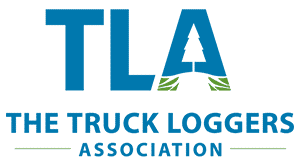The executive director of the Truck Loggers Association’s message that senior government policies are not doing the forest industry any favours fell on sympathetic ears Tuesday, Sept. 5.
Bob Brash delivered that message as a delegation to Campbell River City Council’s Committee of the Whole.
“Thanks, again, for the opportunity to talk to you folks like we do on a fairly regular basis,” Brash said. “I’ll take a few moments to just sort of tell you what’s going on these days in the world of forestry.”
Brash’ message was that, from the forest industry’s point of view, not much was going on in the world of forestry to help further the industry’s aims.
“I’m like a bit of a broken record from previous chats we’ve had with you folks is the complete lack of a transition plan for the ministry, or for the forest sector these days,” Brash told council. “And I guess, what I’m getting at is, is whether you agree with the long term objectives of government and what they’re trying to do or not, there should be sort of an adequate transition plan. And right now, for all intents and purposes, that’s non-existent.”
Brash pointed out lots of people in Campbell River are dependent on the forest sector and they’re all facing “some challenges these days.” The analogy Brash used to describe government forest policy was that if the process to get where government wants to be stretches from A to Z, then the current government is stuck at the letter D.
“I don’t know if they really know how to get past letter D and that’s our concern,” Brash said.
Brash said there are problems getting harvesting areas approved. The BC Timber Sales program has an “abysmal lack of delivery” in terms of the volumes they’re supposed to get out to contractors.
He acknowledged that everyone is total agreement with the notion of reconciliation and transfer of tenures to First Nations, however, that process is “taking a long time and that sort of instills yet another level of uncertainty for the forest sector moving ahead.”
Meanwhile, the value-added sector is facing “severe shortage of supply right now.” Government talks about value over volume, in terms of objectives, but the “Catch-22” for the value-added sector is that most of them are heavily dependent on the “older growth type of profile.” There are products they can make from second growth but they need time to develop new products and new markets. They also need certainty of supply in order to invest in manufacturing facilities that will allow that transition to happen.
The TLA is expecting imminent delivery of a report conducted for them that canvasses contractors throughout the province on their current state of affairs and how their business is.
“I can say with a high degree of certainty what I think the report’s going to say is, they’re going to say that the uncertainty is causing challenges for them in terms of keeping their business afloat. It’s causing challenges for attracting people to stay in the sector, it’s causing challenges to get young people into the sector, because some of the messaging has, well, not been the most positive, especially from government these days,” Brash said.
Mayor Kermit Dahl pointed out to Brash that most of Campbell River’s city councillors are personally dependent on the forest industry.
“We’re all dependent on it,” Dahl said.
And government is not helping, he pointed out.
“It seems that whether it’s our provincial government or federal government, they’re both attacking the economy of the Central and North Island,” he said. “I know we have tried to get members of our local NDP provincially and federally to go with Coun. (Sean) Smyth to go and see what millions of hectares of old growth looks like to combat this idea that we’ve already logged it all. But even when you offered to put them in a helicopter and cover all of their expenses, they wouldn’t pack a bag lunch to go for that ride.”
Coun. Ron Kerr concurred with everything Brash said and added that the only way to combat it is through advocacy.
“I think the only way that we’re going to be able to deal with the provincial government and the federal government and the crazy policies these days, and their lack of … any way … is by coordination of our advocacy,” Kerr said. “I know, in the past, we have done stuff, but I just have a feeling that, that we’re, we’re, we’re being ignored. And that we can do so much more.”







Get Social